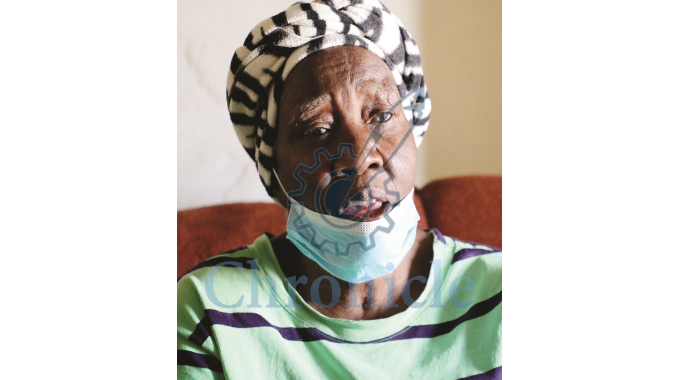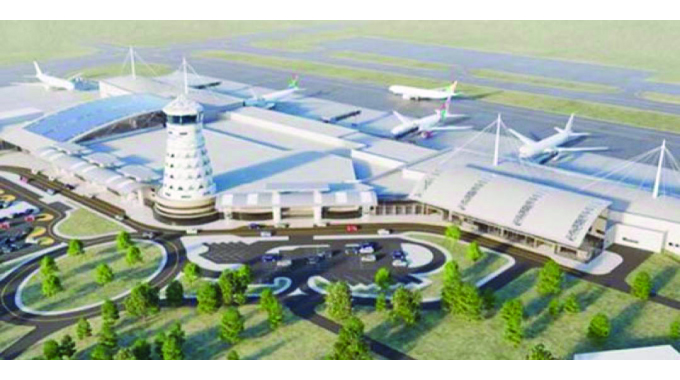Dr Joshua Nkomo loved traditional food

Mashudu Netsianda, Senior Reporter
THE late Vice-President Dr Joshua Mqabuko Nkomo was a warm, generous and kind-hearted man who literally adopted his late brother, Sihle’s children following his death in 1996, his niece Ms Susan Nkomo has said.
Upon his brother’s death, the veteran nationalist made it a point that his brother’s children did not go to bed on empty stomachs.
He would more often than not visit them at their homestead in Kezi in Matobo District to check on them.

Ms Susan Nkomo
Dr Nkomo looked after his brother’s children until they were old enough to fend for themselves.
In an interview at her home in Old Magwegwe suburb yesterday as part of commemorating 23 years of the death of the veteran nationalist and liberation struggle stalwart, Ms Nkomo (74) said since day one of the death of their father, Dr Nkomo assumed the role of father and pledged to take care of them.
“When our father passed on in 1996, our uncle, Dr Nkomo assumed the responsibility of a father and vowed to take care of us, that is myself, my only brother, Thomas and two sisters Emma and Elizabeth.
He would make it a point that we do not go hungry and would also buy us clothes,” she said.
“He treated us exactly the same way he treated his own children.
To him, our well-being was something that he treasured most and that is why even up to this, I get emotional each time, we commemorate his death on July 1,” she said.
Ms Nkomo who was privileged to work closely with Dr Nkomo, also opened up on how her uncle later invited her to stay with him at his official residence in Harare.
She stayed with her uncle as his special cook.

The late Joshua Mqabuko Nkomo
Ms Nkomo said her bond with Dr Nkomo continued to grow from the time she went to stay with him in Harare soon after independence until he breathed his last on July 1, 1999.
Ms Nkomo was among the last people to visit Dr Nkomo on his deathbed at Parirenyatwa Group of Hospitals and first to be notified upon his death.
“I stayed with Dr Nkomo as his special cook and I remember during his last days, he never accepted food from anyone other than what I would have prepared.
We stayed together in Harare from the time he resided at Highfields up to the time he moved to Mandara suburb,” she said.
“I was one of his helpers and my duties included cooking his meals.
He loved traditional food such as isitshwala samabele (inyawuti), millet and dried vegetables and groundnuts and I would cook those dishes for him.”
Ms Nkomo said the duties of two other helpers at his house were confined to doing laundry work and dressing him up including cleaning the house.
She said while on his deathbed, Dr Nkomo urged her to continue working in the State Residences after his death.
“He called me on the morning preceding his death and advised me that even if he dies, I should continue working and I did exactly that.
I didn’t retire till I reached retirement age in 2008,” she said.
Ms Nkomo said throughout the 30 years she worked with Dr Nkomo, she observed that he was an open minded and listening person who interacted with everyone.
“Dr Nkomo was a father figure, very friendly and approachable.
People from all walks of life would visit him at his home and he would freely interact with them such that even the visitors would get amazed at his gesture,” she said.
She also witnessed the restriction of the nationalist to her parents’ homestead in Kezi in Matobo District in September 1962 with Rhodesian forces pitching camp in the area to intimidate villagers.

Robert Gabriel Mugabe International Airport
Popularly known as Father Zimbabwe, the fearless freedom fighter, had just returned home from exile in September 1962 when Rhodesian security agents intercepted him, minutes after landing at the then Salisbury International Airport (Robert Gabriel Mugabe International Airport) in Harare.
He was subsequently bundled into a police car and taken on a long road trip to Bulawayo.
He was detained at Bulawayo Central Police Station before being transferred to Kezi Police Station and later to his homestead where he spent four months under a restriction order.
During that period, Dr Nkomo was only allowed to move out of the homestead for a radius of not more than 3km under police escort.
Throughout his restriction, the undeterred Dr Nkomo exhibited bravery, zeal and determination to liberate the country from the repressive colonial government.
Dr Nkomo succumbed to prostate cancer on July 1, 1999 at the age of 82, and was buried at the National Heroes Acre in Harare.
He used trade unionism as a stepping stone to politics to oppose white settler domination in Southern Rhodesia.–@mashnets










Comments